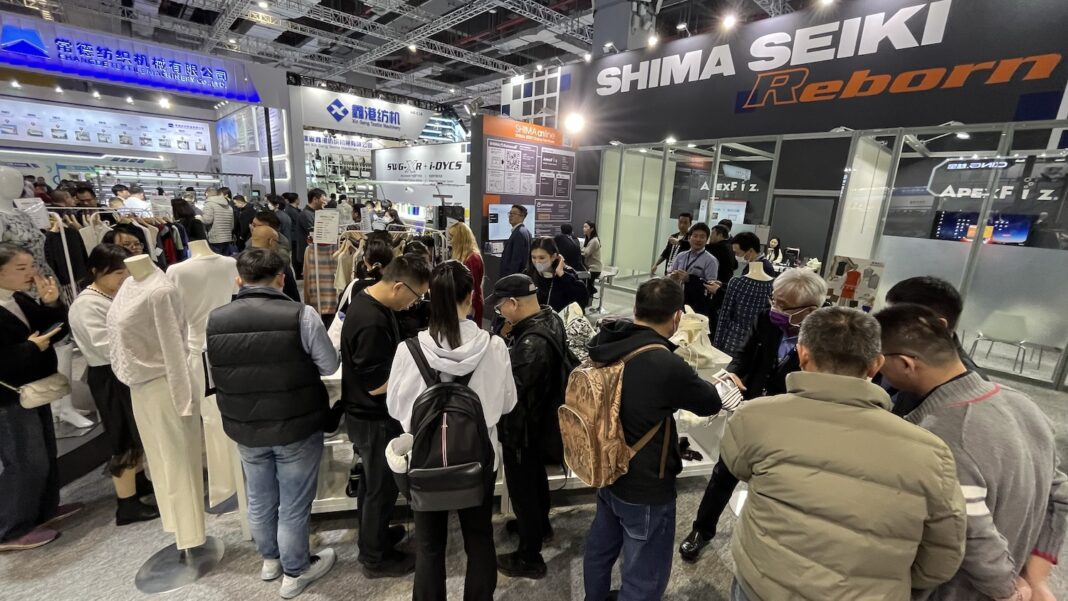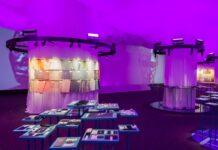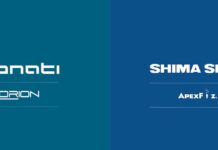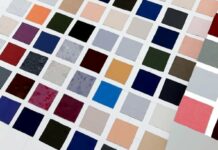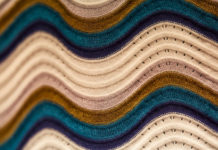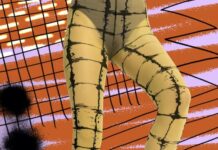Shanghai
Japanese flat knitting technology leader introduces next generation prototype flat knitting machines to Asian markets at ITMA ASIA + CITME.
ITMA ASIA + CITME, Asia’s leading business platform for textile machinery, opened here in Shanghai on Sunday at the National Exhibition and Convention Centre (Shanghai). The five-day exhibition is showcasing an array of technological solutions to help textile manufacturers stay competitive and sustainable and occupies six halls featuring exhibits from 18 product sectors of the entire textile manufacturing value chain, ranging from spinning to finishing, recycling, testing and packaging.
Postponed from last year due to pandemic related issues, ITMA ASIA + CITME 2022 continues to enjoy the support of the world’s major textile machinery manufacturers, attracting total of 1500 exhibitors from 23 countries and regions.
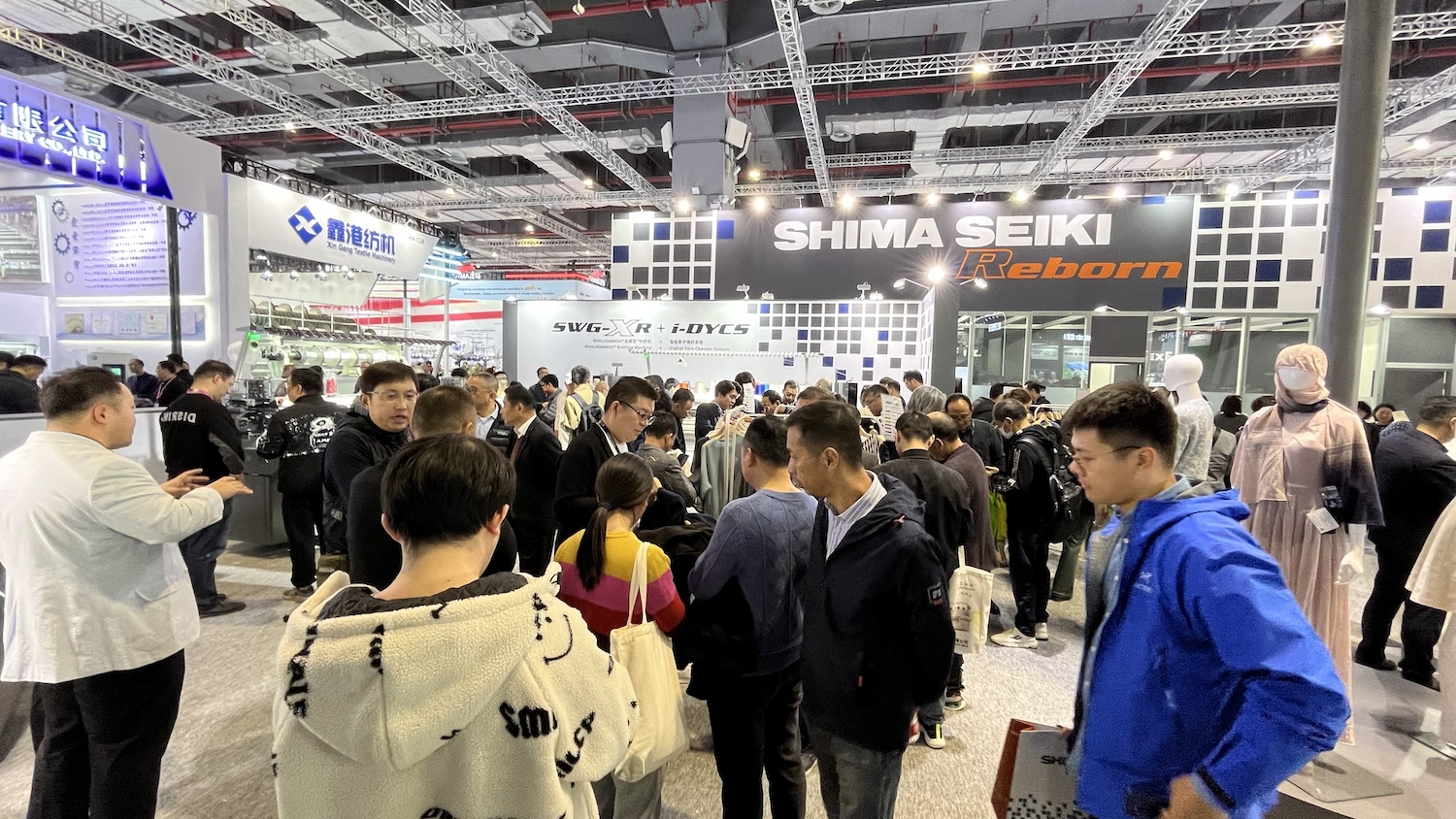
For flat knitting leader Shima Seiki, ITMA ASIA + CITME is an opportunity to showcase its next-generation prototype machines which were introduced at ITMA 2023 in Milan this summer. The next generation machines are represented by the letter ‘R’ which stands for ‘Reborn’ and is also the basis for Shima Seiki’s exhibit concept – ‘Shima Seiki Reborn’.
Read more about Shima’s rebirth here – Shima Seiki is Reborn at ITMA 2023.
Setting the benchmark
One of the main attractions at the Shima Seiki booth (Hall 4, Stand D20) in Shanghai is the company’s SWG-XR Prototype WHOLEGARMENT knitting machine, which raises the bar yet again in terms of complete garment knitting. Now in its 5th generation, Shima’s SWG-XR sets the benchmark for speed, efficiency, quality, variety and reliability. The SWG-XR name is in fact a nod to Shima’s SWG-X, the world’s first 4-needle bed machine that launched a new genre of knitwear, when it debuted at the 1995 ITMA in Milan.
25% increase in productivity
The SWG-XR has been re-evaluated from the ground up and enables very high quality and stable all-needle knitting for a wide selection of WHOLEGARMENT products. The 4-system machine features auto yarn carriers, a new spring-type moveable sinker system, and a compact, light-weight carriage.
“All of the above contribute to increased productivity of more than 25% over the previous MACH2 XS machine, as well as increased product range using a wider variety of yarn for supporting knits for all seasons, and higher quality for knitting beautiful fabrics and silhouettes,” commented Shima’s head of communications, Masaki Karasuno, at the Shima Seiki booth.

“Even items that were impossible to knit with the previous MACH2 XS series, can now be knitted,” Mr Karasuno added.
The prototype SWG-XR machine on show at the Shima booth, is described as “a testbed for new features, including efficient, high-quality knitting of 18-gauge fabrics and a brand-new user interface for improved connectivity.” Shima says it intends to make improvements to the machine following visitor feedback in preparation for the machine’s official release.
“SWG-XR is ready to become the new standard for the next generation in waste-free, sustainable WHOLEGARMENT knitting,” said Mr Karasuno.
44 colour WHOLEGARMENT knitwear
In addition to the SWG-XR prototype machine, a current-model SWG-XR machine is also on show, which is equipped with Shima’s new i-DYCS intelligent Digital Yarn Changer System. Offered as a brand-new option for the SWG-XR WHOLEGARMENT knitting machine, i-DYCS uses knotter units to change yarns on the fly according to the knitting pattern. Up to 8 colours are supported per unit, and with 2 units on each side feeding a total of 4 active yarn carriers, 32 colours are supported by i-DYCS alone.
In addition, by assigning colours to the remaining 12 carriers on SWG-XR, a total of 44 colours can be used in a single garment. This beats the record previously held for maximum number of colours in flat knitting by Shima’s own N.MACH2 SIR intarsia machine. However, this time the record has been broken by a WHOLEGARMENT knitting machine, which gives a clear indication as to the importance Shima places on developments in WHOLEGARMENT knitting machine technology.
Alternate needle WHOLEGARMENT knitting
New to the Asian market is Shima’s N.SVR 183 WHOLEGARMENT knitting machine for producing WHOLEGARMENT knitwear using every other needle in fine gauge. The N.SVR 183, exhibited in 21 gauge, is said to be the ideal machine for flexible, entry-level WHOLEGARMENT production, and is equipped with the R2CARRIAGE system and a compact, lightweight carriage for even higher productivity.
Intarsia, inlay and i-Plating
Also, on show at the Shima booth at the National Exhibition and Convention Centre, is the company’s N.SIR 123SP flat knitting machine with intarsia capability, featuring a special loop presser bed for producing hybrid inlay fabrics with both knitting and weaving characteristics. Shown in 16 gauge, N.SIR 123SP features Shima’s i-Plating option, capable of alternating yarn colours in any pattern, producing jacquard-like designs in light-weight plain jersey structure. Plating can be performed within the same course and for individual needles. In combination with the loop presser and spring-type moveable sinker system even greater diversity in knit design is possible.
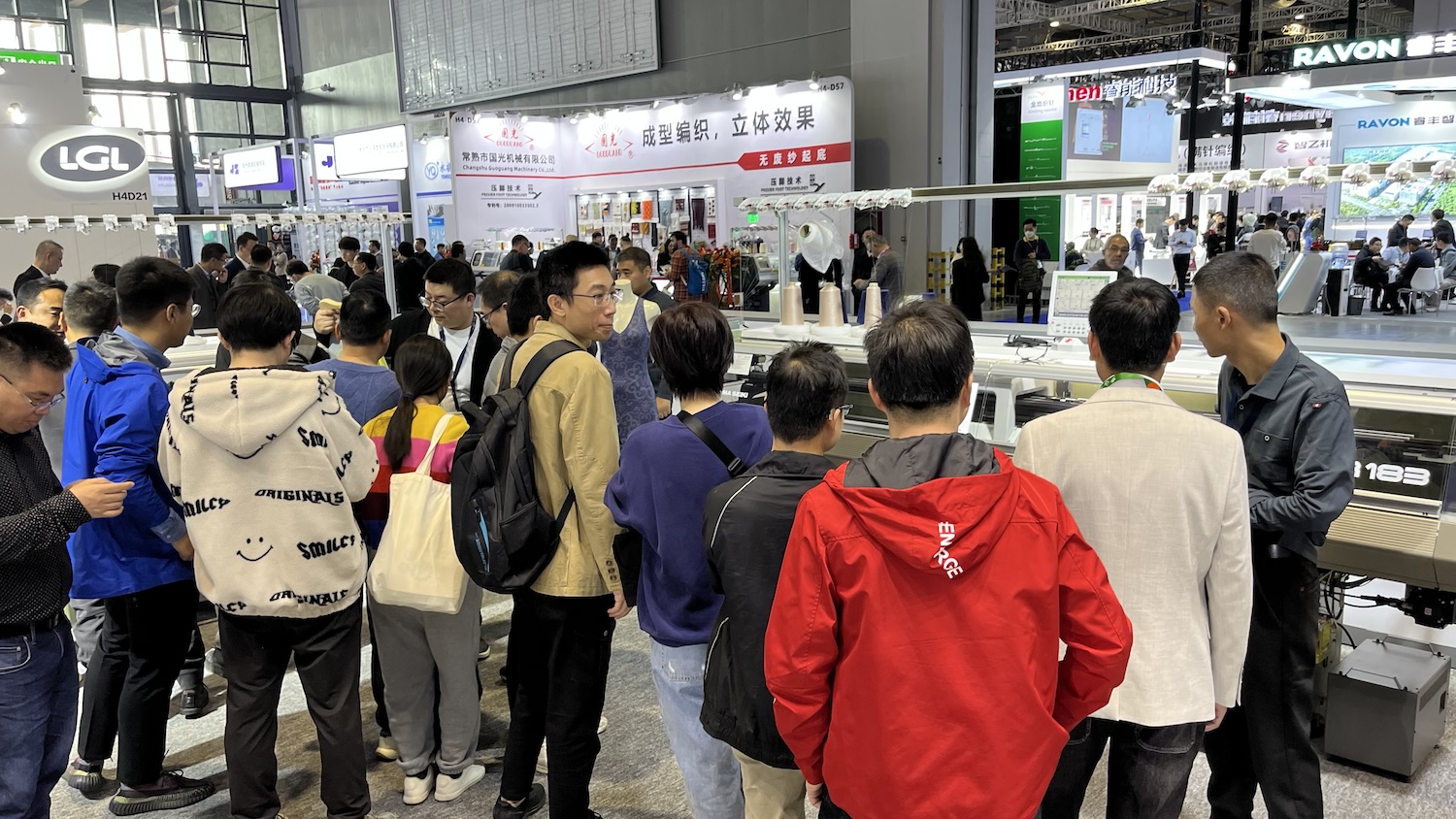
Shima is also exhibiting an 18-gauge N.SVR 122 computerised flat knitting machine which features spring-type moveable sinkers, takedown rollers, Rapid Response R2CARRIAGE, DSCS Digital Stitch Control System, stitch presser and takedown comb.
“Made-in-Japan quality, reliability, productivity, user-friendliness and cost-performance combine to satisfy the high expectations of the world’s fashion industry,” explains Masaki Karasuno.
SDS-ONE APEX4 and APEXFiz
Shima’s SDS-ONE APEX4 3D apparel design system and APEXFiz subscription-based design software support the creative side of fashion from planning and design to colourway evaluation, realistic fabric simulation and 3D virtual sampling. Shima is showing a huge range of virtual samples, digitised versions of samples, that are accurate enough to be used as prototypes, replacing physical sampling and consequently reducing time, cost and material that otherwise go to waste.
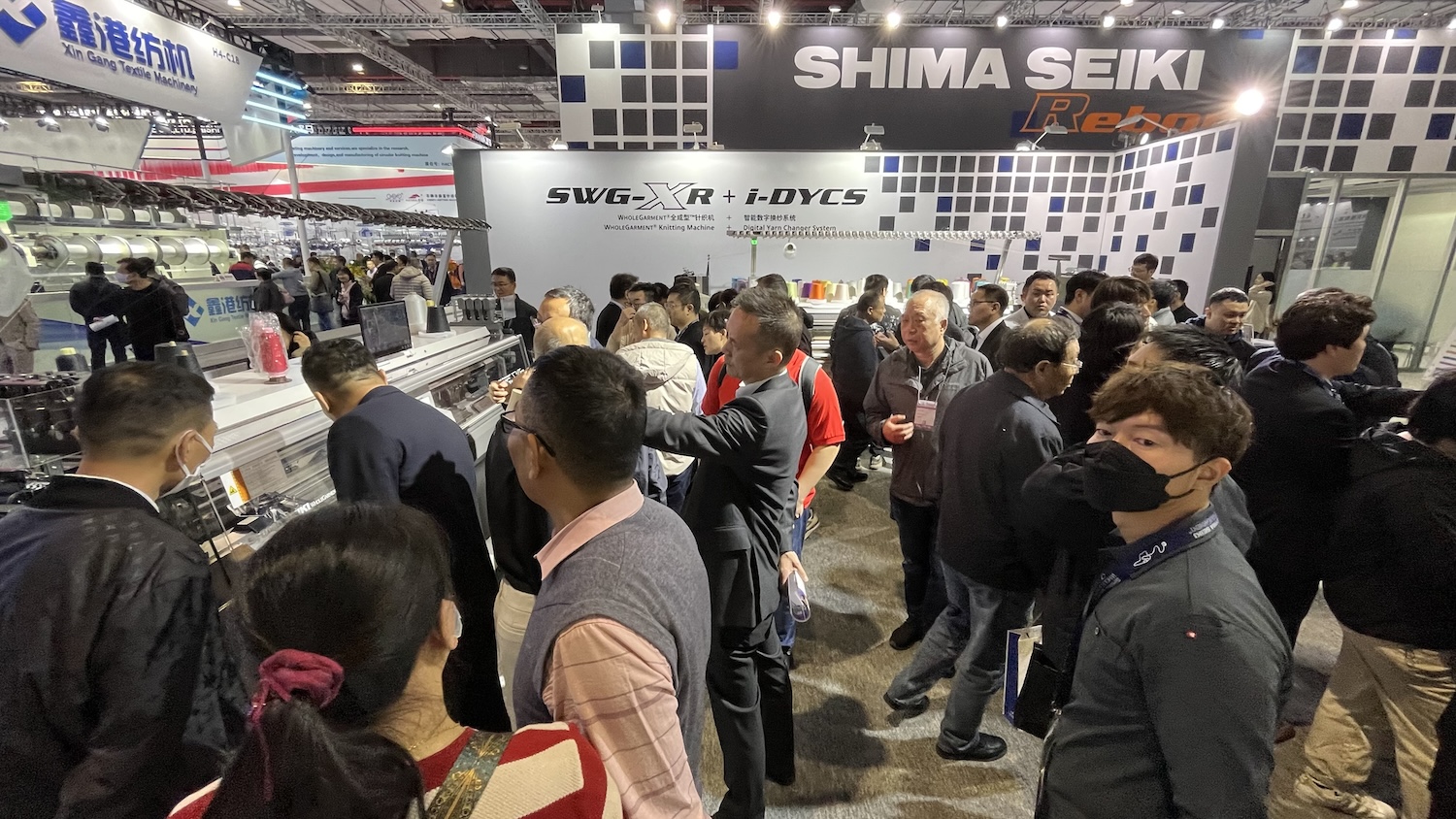
When a design is approved for production, knitting data which is automatically generated can be converted easily to machine data, allowing smooth communication for digitally bridging the gap between design studio and factory. Before going to production however, the same virtual samples can be used in retail, for example in e-commerce, to gauge consumer response to items before going to market, effectively realizing production based on demand forecasting.
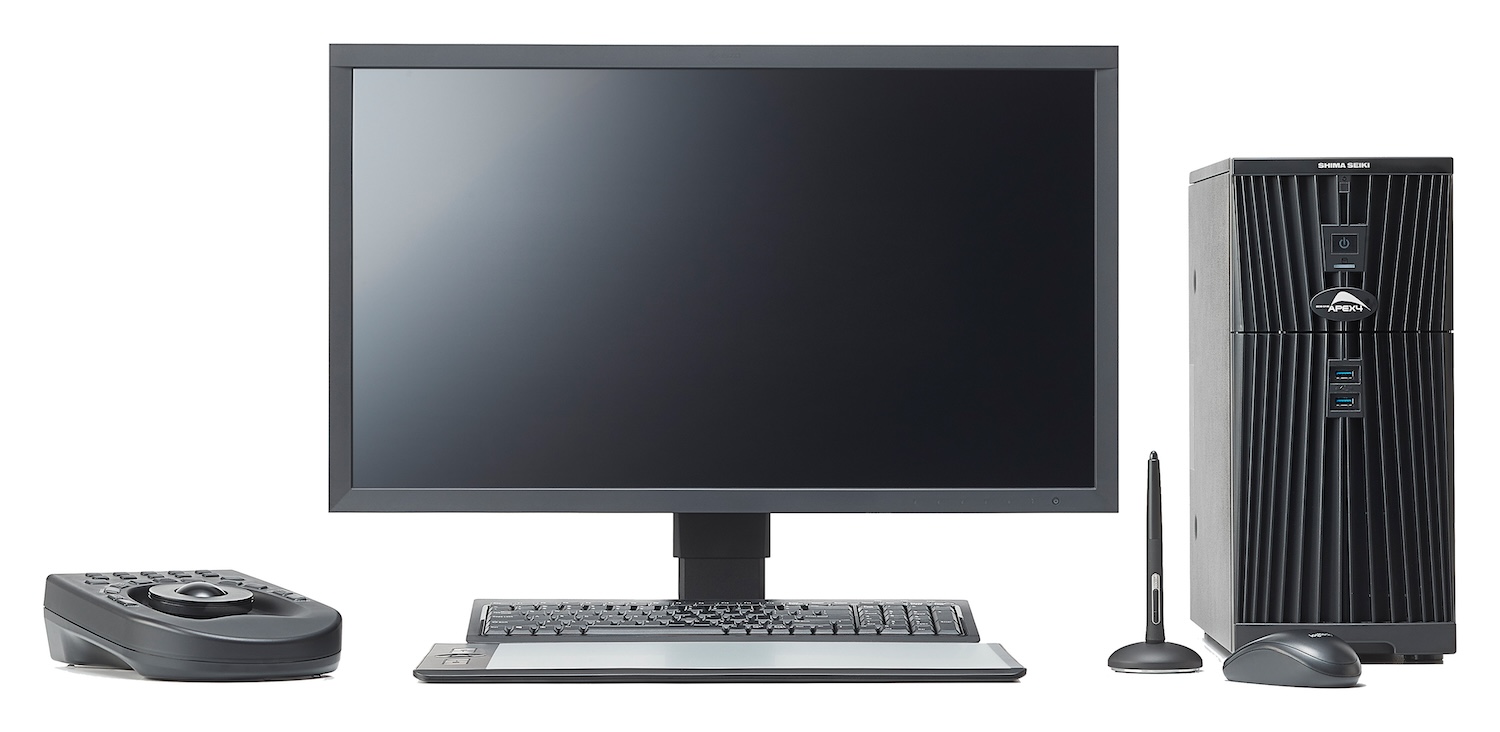
© Shima Seiki
At ITMA Asia + CITME 2022 Shima is also showing new software that improves realism for virtual samples even further, as well as new intarsia programming software that reduces lead time significantly. The company’s flagship design system SDS-ONE APEX4 is demonstrating mainly knit programming software, while APEXFiz is demonstrating design software as well as various web services to enhance the APEXFiz experience.
“We are really thrilled to be back here exhibiting in Shanghai and are very satisfied by the positive visitor reaction so far,” concluded Masaki Karasuno.

Subscribe To Our Newsletter
Join our mailing list to receive the latest news and updates from our team.


